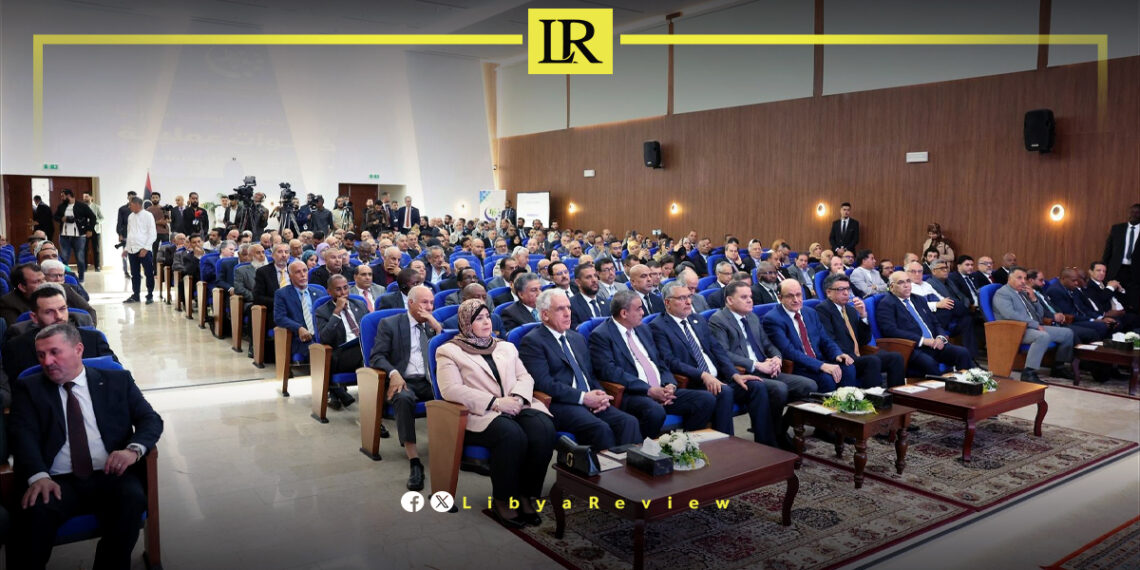Head of Libya’s Audit Bureau, Khaled Shakshak, participated in the opening ceremony of the First Libyan Economic Forum, held in Tripoli under the theme “Libya… A Promising Future.” The event was organized by the National Council for Economic and Social Development, and attended by representatives from both the public and private sectors.
During the forum, Libya’s outgoing Prime Minister Abdel-Hamid Dbaiba officially approved national strategies for economic reform and development. These strategies are set to be implemented under the supervision of state institutions, in cooperation with the private sector and civil society. They aim to stimulate economic growth, strengthen production, ensure financial stability, and promote transparency and good governance of public funds.
Shakshak’s attendance reflects the Audit Bureau’s commitment to supporting Libya’s national reform agenda, and its role in aligning with the country’s broader development plans.
The event marks a significant step toward laying a sustainable foundation for economic modernization in Libya, amid ongoing efforts to revive state institutions and restore investor confidence.
Libya has been in chaos since a NATO-backed uprising toppled longtime leader Muammar Gaddafi in 2011. The county has for years been split between rival administrations.
Libya’s economy, heavily reliant on oil, has suffered due to the ongoing conflict. The instability has led to fluctuations in oil production and prices, impacting the global oil market and Libya’s economy.
The conflict has led to a significant humanitarian crisis in Libya, with thousands of people killed, and many more displaced. Migrants and refugees using Libya as a transit point to Europe have also faced dire conditions.
The planned elections for December 2021 were delayed due to disagreements over election laws and the eligibility of certain candidates. This delay has raised concerns about the feasibility of a peaceful political transition.
Despite the ceasefire, security remains a significant concern with sporadic fighting and the presence of mercenaries and foreign fighters. The unification of the military and the removal of foreign forces are crucial challenges.


